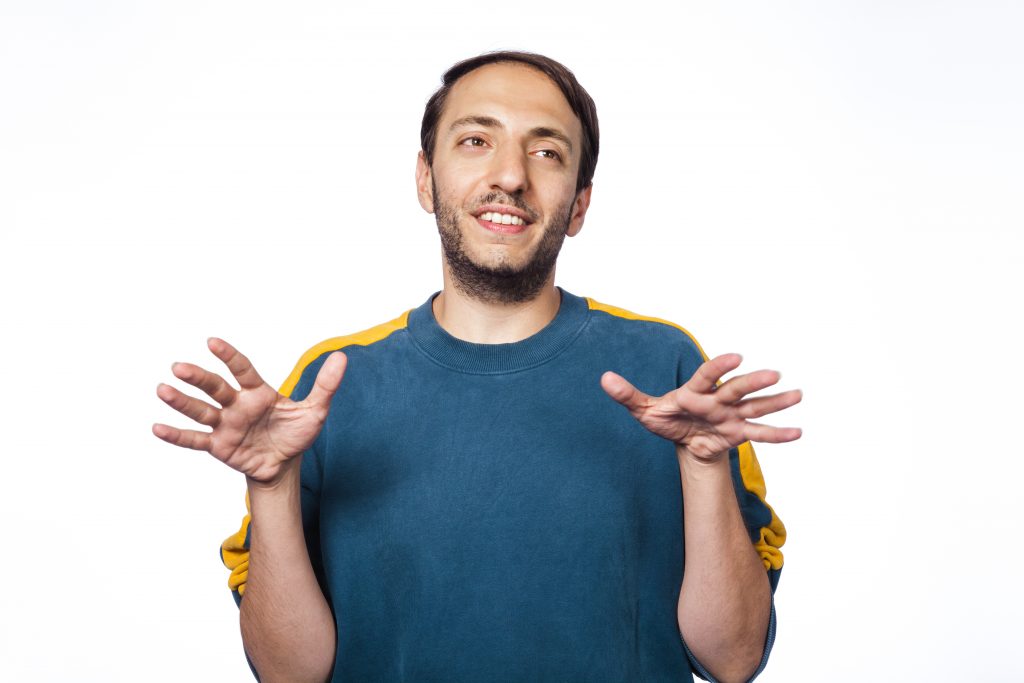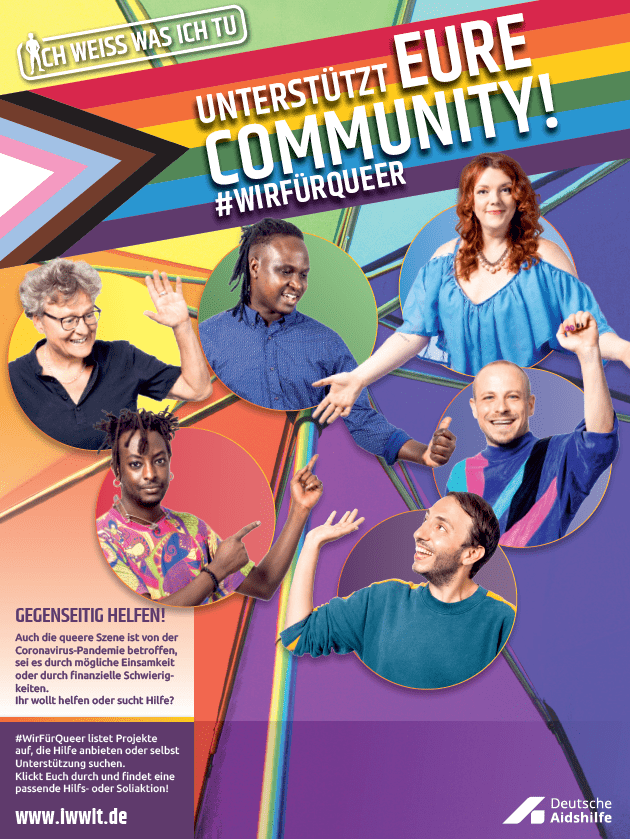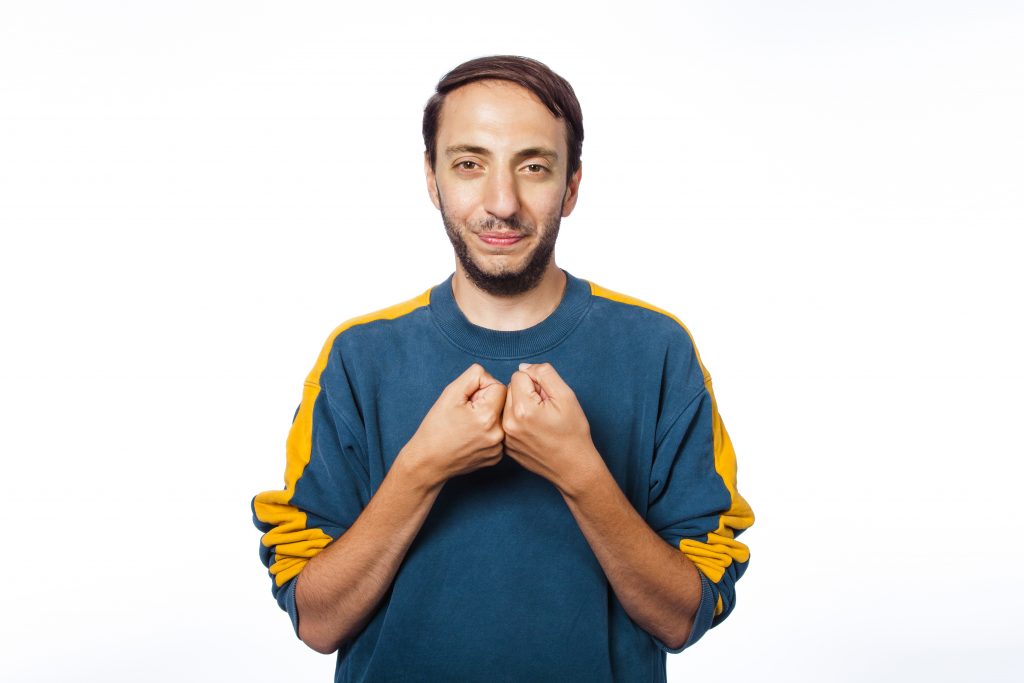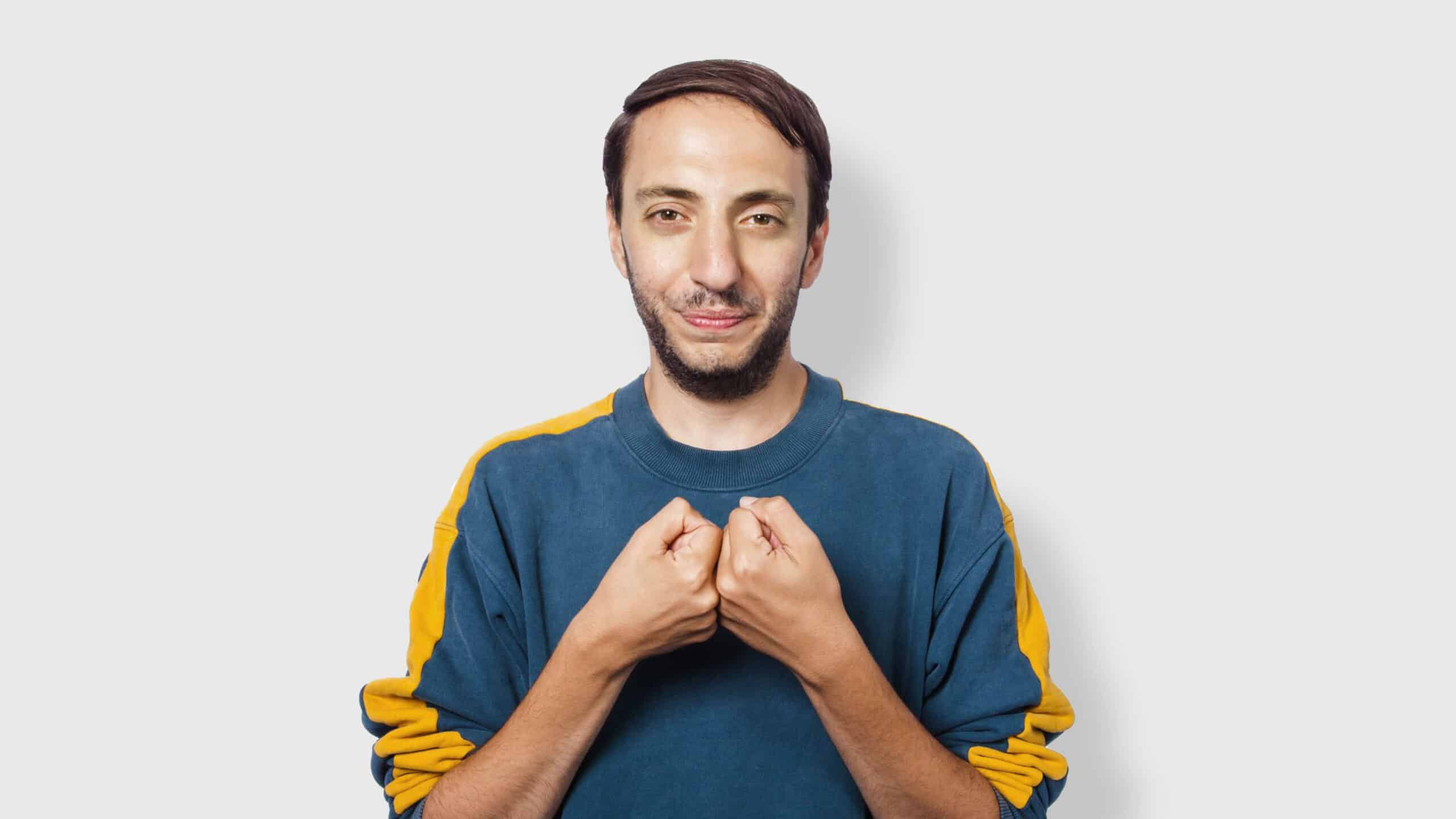Zuher Jazmati is 30 years old, sign Scorpio and lives in Berlin. In addition to his day job, he works as a podcaster, DJ and campaigner and does political education work, where he aims to raise awareness of the various effects of discrimination from an anti-racist, intersectional perspective.

Zuher, how did you experience the corona period?
Different! I have a complex perspective on it: not everything was great, not everything was mega bad... As I'm very active and invest a lot of energy in my projects, I'm often pretty exhausted and tired. So the lockdown came in handy as an enforced break. At the same time, the situation was also stressful for me because people were dying as a result. Nevertheless, I found it positive and necessary that I could take time for myself, time to unwind. I think that applies to many freelancers and people in the events sector. - Gigs as a DJ and workshops were cancelled, which was also painful. That's what I miss most: partying, DJing, making people happy through music. I don't think there is a simple answer to this question, it was and is a cut in everyone's life.
And what was it like for you when the lockdown was eased again in the summer?
I also thought about the people from at-risk groups who can't enjoy it. That also applies to people I have contact with, like my grandmother and my father. Or people with disabilities, for whom corona is really much more dangerous. People who are not as young, not as sporty or not as healthy as me. I am constantly confronted with the fear of the virus and the thought of what an infection would mean for my family, for example.
It's also getting colder now, so people are perhaps cycling less and using public transport more. I'm also seeing more and more reckless people who don't wear their masks and don't follow the rules. That makes me more afraid of the virus. Because what does this risk mean for my grandmother or my father, for example? That I can see them even less? The contact restrictions that were in place were really painful. When I observe negligent behaviour, my fears become even stronger.

What are important topics for you in the queer scene at the moment?
I see the queer scene in a more differentiated way: in other words, that the so-called 'queer scene' includes many different people who are all confronted with different life realities and forms of discrimination. For example, many people have major problems getting money. For example, if they work as artists or sex workers. Or because performances are made more difficult or banned or they are generally illegalised. Queer places that were created before corona have problems continuing to exist. As an example, I can cite the Queer Arab Party which took place every two months. People with an Arab background used to meet there to celebrate. But partying is no longer possible. If these and other safer spaces disappear, there will also be a lack of opportunities for mutual support and networking. For younger people in particular, this can mean that they have to remain in a queer-hostile environment, such as possibly intolerant families, and are unable to develop.
And on an individual level?
Above all, I see the psychological burden of isolation and loneliness. In addition to the problems of living under difficult conditions, queer people experience this even more. I imagine that being alone is terrible! Especially then, you actually need the closeness that you can have in a community. People in marginalised communities in particular need the closeness, the coming together, the networking, the exchange. It's a big problem that a lot of things can no longer take place.
What does (queer) solidarity mean to you?
That people stand up for each other, are there for each other when problems arise. For me, solidarity starts above all with working on yourself. I mean empathy with and sensitisation to forms of marginalisation that don't affect me. That if I am straight, I show solidarity with people who are not straight. That when I am white I stand in solidarity with people who are not white are. Or that I, as a non-impaired person, am in solidarity with people who are not abled. For me, it's about empathising with the lives of others in order to be able to show solidarity. To scrutinise your knowledge and ideas about people and to expand them from time to time. I would like everyone to reflect on themselves and to check our privileges, to stand up for solidary behaviour.
What do you wish for the queer co-community in the future?
For me, there is not THE queer community, singular. Rather, there are queer communities in the plural, because we are not all the same. It is important to me to recognise the diversity of the groups that are summarised in the term 'queer community' and, above all, to recognise the different power relations that exist in reality. We are not all in the same boat as a queer person from Moria or someone who is threatened with deportation. I would like to have this differentiated from the generic term "queer" so that we can do justice to the existing differences.

Is there a project that you think needs special support at the moment - and if so, why?
Yes, the queer projects in Nigeria that campaign against police violence. When I lived in London, I was in contact with the large Nigerian community there. And here in the black community, many tweets on the topic go viral, but you don't see any of it on the news! Nigeria is the most populous country on the African continent and there are a lot of protests there right now - the media here are paying zero attention to it! That's why my colleague Dominik and I are doing the Black Brown Queer Podcast (BBQ). Black lives matter also applies to African countries!
Is there anything else you would like to say?
(Laughs) Yes: Wear your mask, check your privileges!
The queer scene has also been affected by the coronavirus pandemic, whether through possible loneliness or financial difficulties. Do you want to help or are you looking for help? #WeForQueer lists projects that offer help or are looking for support themselves. Click through and find a suitable aid or solidarity campaign!










